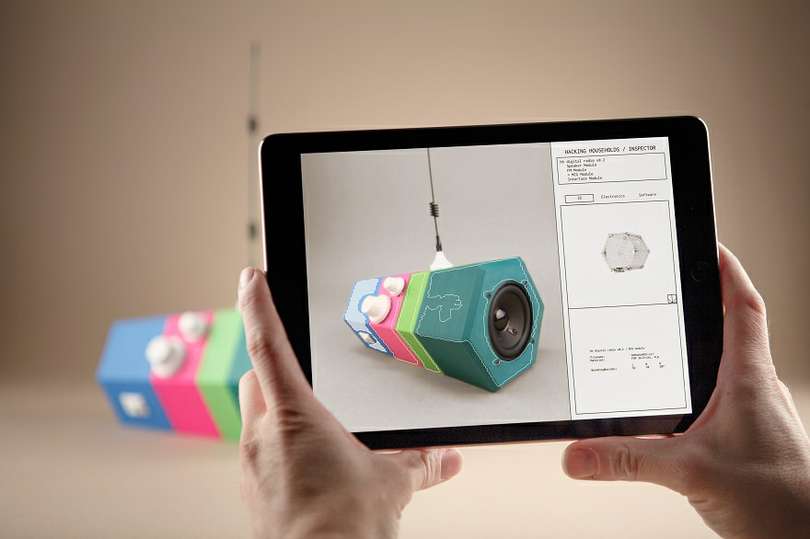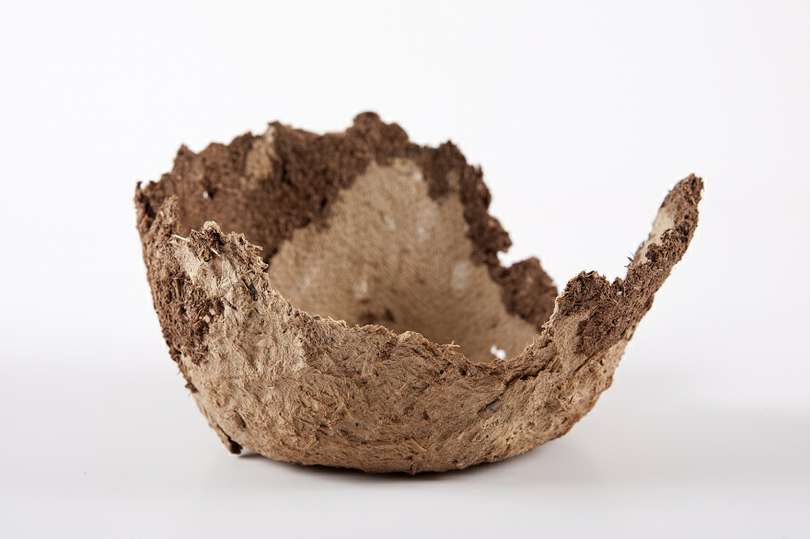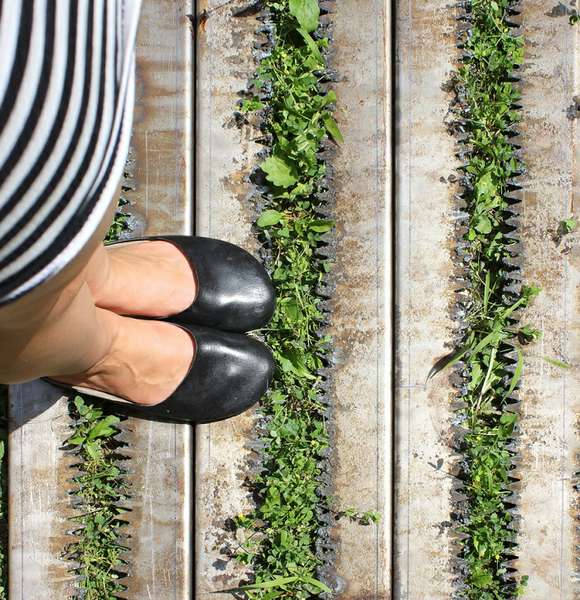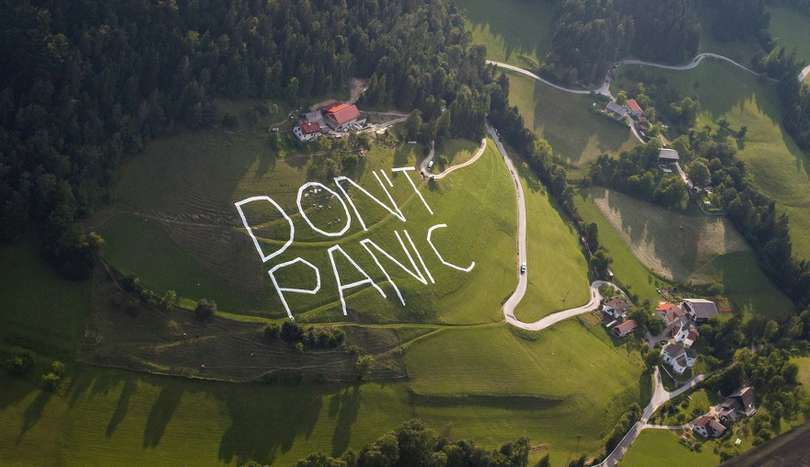A Year after Closing the Exhibition, BIO 50 Projects Continue
Hacking Households continue its work with the same fervour and intensity as during the preparations for the BIO 50 exhibition. Their electronic devices, developed from the objects prepared for BIO 50, were presented at several important festivals and events (Adhocracy, Milan Design Week 2015). At Dutch Design Week in Eindhoven they participated with Cloning Objects, while recently they were invited to present the project at Munich Creative Business Week as part of the Design Connects Visions For Economy exhibition (22 to 28 February 2016). Be there and check on the spot what potential the economy promoters will attribute to the project!

The designers of the group Knowing Food have founded Re-Generacija, a platform for the further development of projects they started during BIO 50. In the context of Japanese Knotweed – A Friendly Enemy, a project that was supported by City Municipality of Ljubljana, they researched possible uses of this invasive non-native plant. Their work resulted in Japanese-knotweed-based cellulose from which the first paper samples were made in the spring. In autumn, the project received support from the Ministry of Culture of the Republic of Slovenia, while MAO joined as producer. Together, we established a partnership with the Pulp and Paper Institute Ljubljana (ICP), the Re-Generacija Association, the Craftsman Workshop Vevče and Department of Industrial and Unique Design at the Academy of Fine Arts and Design (ALUO), and paved the way for unprecedented possibilities in the use of Japanese knotweed cellulose – in paper-making as well as for other cellulose-based products. The findings of the project are presented at the A Friendly Enemy - Japanese Knotweed in the Paper Laboratory in MAO (11 December 2015 to 28 February 2016) and will travel to Pulp and Paper Institute Ljubljana afterwards.

The idea of the Edible Park is to create a sustainable, local-community-oriented habitat. Using a mock-up made during BIO 50, Leonora Jakovljevič presented the project in several municipalities in Slovenia and conducted several workshops featuring this theme. Currently, co-ordinations and agreements adapted to specific situations are under way in the municipalities of Ajdovščina, Ilirska Bistrica, Postojna and Ljubljana.
RUDY, RENT-A-TROLLEY from Hidden Crafts received support from the Regional Development Agency of the Ljubljana Urban Region (RRA LUR) right after the end of the Biennial. Project partners signed a letter of intent with the authors for the further development of the project. Mima Suhadolc and Urša Vrhunc were commissioned by RRA LUR to conduct a research into the applicability of the trolley in closed urban pedestrian zones. On the basis of this research, the City Municipality of Ljubljana expressed its interest in pilot implementation in Ljubljana city centre. Currently, coordination is under way between MOL and Interseroh d.o.o., the partner of the group during BIO 50. At the moment, the project is in the stage of developing a prototype, which will form the basis for the subsequent production of the trolley. Expect to see Rudy in Ljubljana soon.
Stone company’s founder and owner Ben Ogrinom continues started at BIO 50. Along with designer Anna Badur they presented products from REPEN material at this year's Milan furniture fair Salone del Mobile.
Another project from BIO 50 Handmade in Moste, the project Time piece by Klemen Zupančič and Klara Zalokar, is also slowly showing progress. They found a client who ordered a stone time piece for the wall of his living room - a round stone slab with 120 cm in diameter will rotate for 360 degrees with the help of an electrical mechanism in one lunar cycle.
Glassblowing factory Steklarna Hrastnik was along with Ernest Nograšek and Annika Frye presented at this year's Milan Design Week. Steklarna Hrastnik, famous for its exceptional strength, glass purity and technology enabling the production of glass products of large dimensions, was celebrated for its hand produced work.
Works designed by Annika Frye, produced in cooperation with the masters of Steklarna Hrastnik, were recently published in the book Handle with Care by German publisher Trademark publishing and on the online platform Pamono.

Following BIO 50, The Reboots also from Hidden Crafts was presented at the Adhocracy exhibition at the Onassis Cultural Centre in Athens (29 April to 4 July 2015). The second phase of the projects is currently in development and will be presented to the public in the spring of 2016.
PSX Consultancy's (from Designing Life) presentation of an utopian project of sex toys for plants, which facilitate their problematic natural course of reproduction, has been touring Europe ever since the Biennial closed its doors and was the recipient of several high-profile awards. The project was exhibited at Baltan Laboratories in Eindhoven (6 March to 1 May 2015), where group members also organised a series of workshops, at Ars Electronica in Linz they received a Honourable Mention (3 to 13 September 2015), at Core77 Design Awards they received an award in the category Speculative Concepts Professionals. The project was also presented at MFRU – KIBLIX Festival in Maribor (7 to 9 October 2015) and at the Abandon Normal Devices festival in the UK (18 September to 6 December 2015). In December, the project will once again be on display in Ljubljana at the 2005-15 exhibition of the Museum of Modern Art Metelkova.
Mobile structure MOTO hosted numerous artists, workshops and was featured as the base for different activities in MAO garden. MOTO also toured several other venues in Ljubljana, among them the Flow Festival in Tobačna City, at Tivoli park it hosted the accompanying events of the 31st International Biennial of Graphic Arts, and is currently on display at Trg Republike Square as the venue of the accompanying programme for the Mota association's project Moonlight.
Also projects from the Nanotourism group, which received the main prize at BIO 50, continue to develop.
In cooperation with the Department for Building Theory and Design at the Institute for Architecture and Design of the Vienna University of Technology Tina Gregorič organised the symposia Re-Thinking Tourism 01 and Re-Thinking Tourism 02, focusing the discussion between experts and practitioners on the increasing environmental, social and economic impacts of contemporary tourism, while Aljoša Dekleva as guest professor at the École d’architecture Université de Montréal led a workshop in the autumn semester of 2014 entitled nanotourism // research + design + make.
The second edition of AA Visiting School Slovenia, the two-week experimental architecture course organised in Slovenia as part of the Visiting School programme at the AA School of Architecture, London, followed last year`s success at the same location in Vitanje. The results: DON’T PANIC - Vitanje Space Call and KSEVT as Playground - Lost in Space explored through actions and structures the synergy between local and planetary.
The project BIO 50}hotel was presented at the Milan Design Week, between the 14th and 19th of April 2015. In June, the authors of BIO 50}hotel gave a lecture within the DoD TALK, By Design or By Disaster at Unibz, the free University of Bozen.
Old School Ilica continues the project Made in Ilica. They took part in several events and presentations. They are currently preparing the candidature of the city of Dubrovnik for the European Capital of Culture 2020 based on the model of Old School Ilica. If the candidacy is successful, they intend to establish Dubrovnik as an interactive exhibition space dedicated to education, participation and promotion.
Routine Revolution focused on exploring the nanotouristic potentials of Polish housing estates from the 1960s and 1970s. After a successful presentation at BIO 50, the authors have been invited to create postcards for two housing estates in Lublin, Poland.
In October 2015, nanotourism research group organised a nt tour in Italy discovering and experiencing relevant existing nanotouristic projects: Culturanze, Taranto Vecchia - Domus Armenorum and the Parco Paduli.

The exhibition system by Matic Vrabič evolved into the furniture family Domestic Platforms. The furniture is now produced in small series, however, plans are being made to start with batch production on a larger scale. The furniture gained international attention with its presentation in the Domus magazine. The European Faculty of Law in Ljubljana and a private computer company were recently furnished with the furniture family Domestic platforms.

